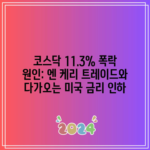Hello everyone, today we’re going to discuss a fascinating and complex topic: the Japanese yen’s recent fluctuations, influenced by both the Bank of Japan (BOJ) and former U.S. President Donald Trump. We’ll delve into why the yen is under pressure to appreciate (increase in value) and what this means for the global economy. I’ll walk you through the details step by step, making it easy to understand, so let’s get started.
1. The Role of the Bank of Japan (BOJ)
Let’s first talk about the Bank of Japan (BOJ) and its impact on the yen. The BOJ has been keeping interest rates at historically low levels for years as part of its ultra-loose monetary policy. This strategy was designed to stimulate the Japanese economy by making borrowing cheaper and encouraging spending and investment.
However, as global economic conditions shift, the BOJ is facing increasing pressure to reconsider this policy. For instance, inflation in Japan has been slowly creeping up, and the Japanese government is concerned about the long-term effects of a weak yen on the cost of imports, especially energy. As a result, there’s growing speculation that the BOJ might tighten its monetary policy by raising interest rates.
If the BOJ raises interest rates, it would make Japanese assets more attractive to investors, which would increase demand for the yen and cause its value to rise. In fact, even the mere anticipation of a rate hike has already led to some appreciation of the yen. As of August 2024, the yen has strengthened by approximately 5% against the U.S. dollar compared to the previous year (JAKOTA).


2. Donald Trump’s Influence
Now, let’s add another layer to this discussion by looking at how former U.S. President Donald Trump has been influencing the yen. Trump has a history of criticizing countries like Japan for what he views as currency manipulation—keeping their currencies artificially weak to benefit exports.
In recent months, Trump has been vocal about his desire to see the U.S. dollar weakened, which has indirectly put upward pressure on the yen. When a major figure like Trump makes public statements about the dollar, it can cause investors to reevaluate their positions, leading to shifts in currency values.
For example, in July 2024, after Trump made comments suggesting that the U.S. should consider policies to weaken the dollar, the yen appreciated by nearly 2% within a week. This kind of volatility highlights how sensitive currency markets can be to political rhetoric (JAKOTA).
3. The Implications of Yen Appreciation
So, what does all of this mean for Japan and the global economy? If the yen continues to appreciate, it could have several significant effects.
First, a stronger yen makes Japanese exports more expensive for foreign buyers, which could hurt Japan’s export-driven economy. Japanese companies that rely heavily on exports, like Toyota and Sony, might see their profits squeezed as their goods become less competitive in global markets.
Second, the rising yen could also affect Japan’s stock market. Historically, there’s been an inverse relationship between the yen’s value and the Nikkei 225 index, meaning that as the yen strengthens, Japanese stock prices tend to fall. This is because a stronger yen reduces the overseas profits of Japanese companies when those profits are converted back into yen (StreetInsider.com).
Lastly, on a broader scale, yen appreciation could influence global trade balances. Countries that import Japanese goods might look elsewhere if those goods become too expensive, potentially reshaping trade relationships.
Conclusion
In conclusion, the yen is currently facing significant appreciation pressure due to a combination of factors, including the BOJ’s potential policy shifts and the influence of Donald Trump’s comments on the U.S. dollar. This situation creates a delicate balance for Japan, as a stronger yen could have both positive and negative consequences.
For investors and businesses, understanding these dynamics is crucial. As the yen’s value fluctuates, it can impact everything from trade balances to stock market performance. Keeping an eye on the BOJ’s decisions and geopolitical developments will be essential in navigating the economic landscape in the coming months.
Thank you for joining me in this analysis. I hope this discussion has shed light on the complexities of currency movements and how they can be influenced by a range of factors.






